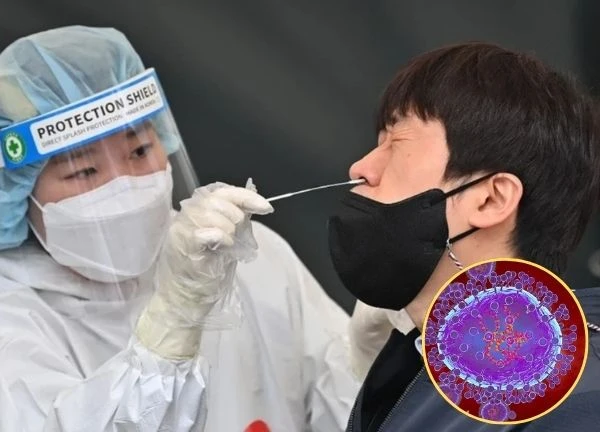Covid-19-like virus outbreak in China: will history repeat itself?

2 | 0 Discuss | Share
Since the Covid-19 pandemic first broke out in Wuhan, China in late 2019. Until now, after 5 years, many important questions about the virus and Covid-19 disease still have no clear answers.
One of the biggest questions scientists have yet to answer is the exact origin of the SARS-CoV-2 virus. First detected in Wuhan, China in late 2019, the virus quickly caused a global pandemic. However, despite numerous studies and theories about the virus’s origins, the answer remains elusive.
One of the most popular theories is that SARS-CoV-2 may have originated in bats, like many other coronaviruses. Bats are known to carry coronaviruses that can infect humans, and many scientists believe that the virus passed to an intermediate animal before being transmitted to humans. However, there is no concrete evidence to support this theory.
Additionally, there has been speculation that the virus may have leaked from a laboratory in Wuhan where coronavirus research was being conducted. However, this theory also lacks solid evidence, and many experts believe that the virus’s natural emergence is more likely.
Regardless, identifying the virus’s origin is important not only for better understanding the development of the pandemic but also for preventing future infectious diseases. However, to date, the exact origin of SARS-CoV-2 remains an unanswered question.
Another question that many people are interested in is: How many deaths are there exactly due to Covid-19? Although the World Health Organization (WHO) has announced a figure of more than 7 million deaths worldwide, many other experts and health organizations estimate that the actual number could be three times higher.
According to one estimate from recent studies, the total number of deaths could be as high as 20 million, including deaths directly due to Covid-19 and deaths related to the pandemic, such as deaths indirectly due to overwhelmed health systems or undertreated medical conditions.
This issue is further complicated by the fact that many countries are unable to accurately report deaths, especially during severe pandemics. Furthermore, determining the cause of death in the context of a pandemic is not straightforward, as many deaths may be recorded as being due to other medical conditions, while Covid-19 may have been a major factor in the deterioration of the patient’s health.
Currently, the elderly continue to be the group most heavily affected by Covid-19. According to the US Centers for Disease Control and Prevention (CDC), in the winter of 2023, people over 75 years old accounted for half of all hospitalizations and deaths due to Covid-19. However, the exact number of deaths remains a mystery and one of the major challenges that the scientific community needs to address.
Covid-19 vaccines have become one of the rare success stories in the fight against the pandemic. Thanks to rapid development efforts, Covid-19 vaccines were introduced less than a year after the virus was identified. Dozens of vaccines have now been approved and billions of people have been vaccinated worldwide.
As of 2021, the World Health Organization (WHO) estimates that more than 13 billion doses of vaccines have been administered globally. The most prominent vaccines include mRNA vaccines such as Pfizer-BioNTech and Moderna, vector vaccines such as AstraZeneca and Johnson & Johnson, and recombinant protein vaccines such as Novavax. These vaccines have helped reduce the number of infections and deaths, and helped the world return to a state of near-normalcy.
But vaccine development and approval is not the end of the road. As with influenza vaccines, Covid-19 vaccines need to be updated periodically to address new variants of the virus. Research is ongoing to develop next-generation vaccines that will hopefully better prevent infection and provide longer-lasting protection.
With the continuous evolution of the virus, new variants of SARS-CoV-2 have emerged and posed significant challenges in controlling the pandemic. Major variants such as Alpha, Beta, Gamma, Delta and Omicron have successively replaced each other to become the dominant virus strains in different countries.
The Delta variant, which emerged in mid-2021, has caused major concern because it has a hospitalization rate twice as high as previous variants. However, Omicron sub-variants have since taken over, and the Omicron XEC variant is now dominant in the US, accounting for about 45% of new infections.
While current vaccines are still effective against these variants, health experts recommend continuing to get booster shots to maintain protection. New variants also accelerate efforts to develop new vaccines and improve treatments.
One of the most mysterious and worrying is the phenomenon of “long Covid,†where millions of people who have recovered from the disease still face lingering symptoms, such as fatigue, brain fog, joint pain, cardiovascular problems, and other health issues. These symptoms can last from months to years, severely affecting the patient’s quality of life.
While there has been some research into what causes long-haul Covid-19, the exact reason is currently unknown. One theory is that remnants of the virus may remain in some patients’ bodies, causing persistent symptoms. Other studies suggest that some people’s immune systems may overreact to the virus, leading to chronic inflammation.
Long Covid-19 is a global health problem that needs further research. Scientists hope that effective treatments will soon be developed to help those who suffer from it make a full recovery.
Five years into the pandemic, the world has learned a lot about Covid-19, but many questions remain unanswered. Finding the origins of the virus, determining the exact number of deaths, developing more effective vaccines, understanding variants, and explaining the phenomenon of long Covid-19 are all important tasks that the scientific community must continue to address. While we continue to grapple with these questions, one thing is certain: global resilience and cooperation will help us overcome the challenges and move towards a brighter future.
HMPV virus "infiltrates" India, the risk of a global outbreak?  Khang Trần16:03:22 06/01/2025Fears of a new health crisis are growing. Starting from China, HMPV has spread to India, prompting authorities to urgently implement response measures.
Khang Trần16:03:22 06/01/2025Fears of a new health crisis are growing. Starting from China, HMPV has spread to India, prompting authorities to urgently implement response measures.

2 | 0 Discuss | Share

5 | 1 Discuss | Share

3 | 1 Discuss | Share

1 | 0 Discuss | Share

3 | 0 Discuss | Share

2 | 0 Discuss | Share

2 | 0 Discuss | Share

1 | 0 Discuss | Share

2 | 0 Discuss | Share

2 | 0 Discuss | Share

2 | 0 Discuss | Share

4 | 0 Discuss | Share










1 | 0 Discuss | Report